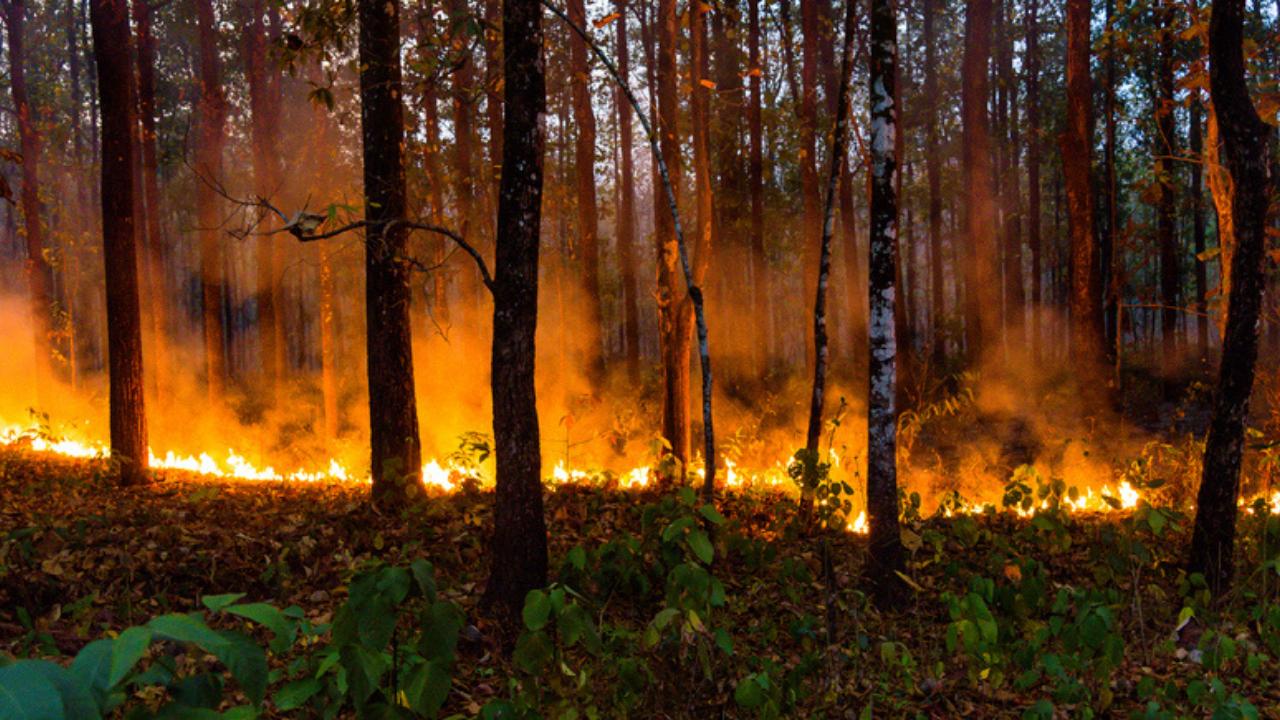An analysis of the energy and financial losses due to the direct and indirect effects of forest fires on the production of solar plants can help grid operators to plan and schedule power generation, as also the distribution, supply, security, and overall stability of power production

Image for representation: iStock
Forest fires that plague different parts of India, especially during summers, play a major role in reducing solar power production in India, a study has found.
ADVERTISEMENT
Several factors such as clouds, aerosols, and pollution generated from various sources limit the solar irradiance, causing performance issues in the photovoltaic and concentrated solar power plant installations. Large-scale development of a solar energy system requires proper planning, and there is a need to estimate the solar potential.
Therefore, an analysis of the energy and financial losses due to the direct and indirect effects of forest fires on the production of solar plants can help grid operators to plan and schedule power generation, as also the distribution, supply, security, and overall stability of power production.
With this thought, researchers at the Aryabhatta Research Institute of Observational Sciences (ARIES), Nainital, and the National Observatory of Athens (NOA), Greece tried to trace the factors that reduce solar energy production. They found that apart from clouds and aerosols, forest fires play a very crucial role in reducing solar energy production.
The study, published in the international peer-reviewed journal Remote Sensing, shows that the aerosol optical depth values were up to 1.8 during the study period (January to April 2021), during which massive forest fire events led to attenuation of total solar radiation incident on a horizontal surface (global horizontal irradiance- GHI) and solar radiation received from the sun without having been scattered (beam horizontal irradiance --BHI) by 0 to 45 per cent. During this period, the air masses were renewed quickly mitigating the smoke contribution to the total aerosol loads and were dominated by continental pollution.
The scientists used remote sensing data for the research and studied the impact of aerosols and clouds on the solar energy potential over the Indian region with extensive analysis and model simulations. They also provided an analytical financial analysis in terms of revenue and losses due to clouds and aerosols.
The research was led by Umesh Chandra Dumka, scientist, ARIES, with contributions by Panagiotis G Kosmopoulos, scientist, NOA, and Piyushkumar N Patel, scientist, Jet Propulsion Laboratory, California Institute of Technology, US, and provided a comprehensive investigation of the impact of aerosols and clouds on solar energy production over the region.
The findings of the present study will drastically increase the awareness among decision-makers about the effect of forest fires on energy management and planning at a country level. In addition, this research can support the mitigation processes and policies for climate change and its direct and indirect impacts on sustainable development, the study suggested.
This story has been sourced from a third party syndicated feed, agencies. Mid-day accepts no responsibility or liability for its dependability, trustworthiness, reliability and data of the text. Mid-day management/mid-day.com reserves the sole right to alter, delete or remove (without notice) the content in its absolute discretion for any reason whatsoever.
 Subscribe today by clicking the link and stay updated with the latest news!" Click here!
Subscribe today by clicking the link and stay updated with the latest news!" Click here!







